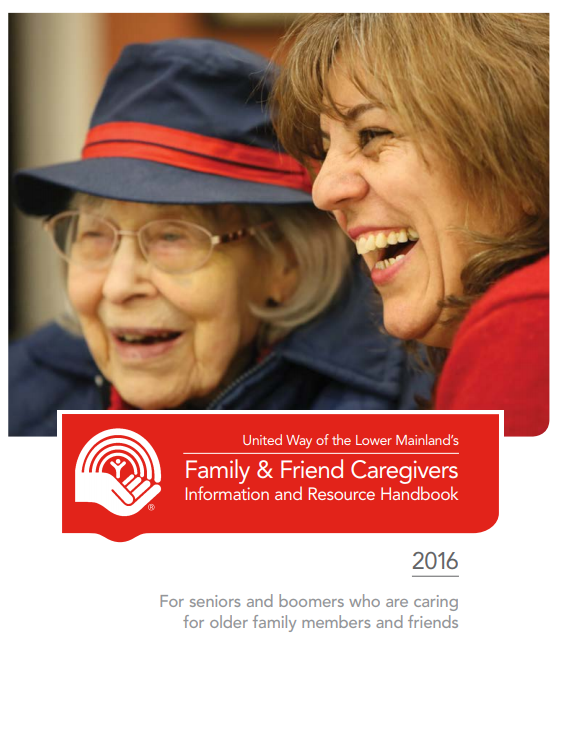 As we grow older, the chance of developing complex health issues increases as does our need for assistance and care. If you are caring (unpaid) for an elderly family member or friend, this handbook was written for you! Caring for an elderly person with failing physical and/or cognitive health can provide challenges and significantly change your life. When you know what government services are available to you and your care recipient and tap into non-profit society and business resources, you can reduce strain, worry, and the risk of deterioration of your own health that can accompany the journey family and friend caregivers take when they care for an older person. As well, your care recipient can experience an improved quality of life by being connected to community resources. This handbook stresses three points:
As we grow older, the chance of developing complex health issues increases as does our need for assistance and care. If you are caring (unpaid) for an elderly family member or friend, this handbook was written for you! Caring for an elderly person with failing physical and/or cognitive health can provide challenges and significantly change your life. When you know what government services are available to you and your care recipient and tap into non-profit society and business resources, you can reduce strain, worry, and the risk of deterioration of your own health that can accompany the journey family and friend caregivers take when they care for an older person. As well, your care recipient can experience an improved quality of life by being connected to community resources. This handbook stresses three points:
1. Talk with the people you care for about planning ahead and their wishes for their ''old age'' - Please don't wait until a crisis occurs
2. Caregiving =- Don't try this alone! (Family Caregiver Alliance motto)
3. Practice self-care
Source: United Way of the Lower Mainland

















